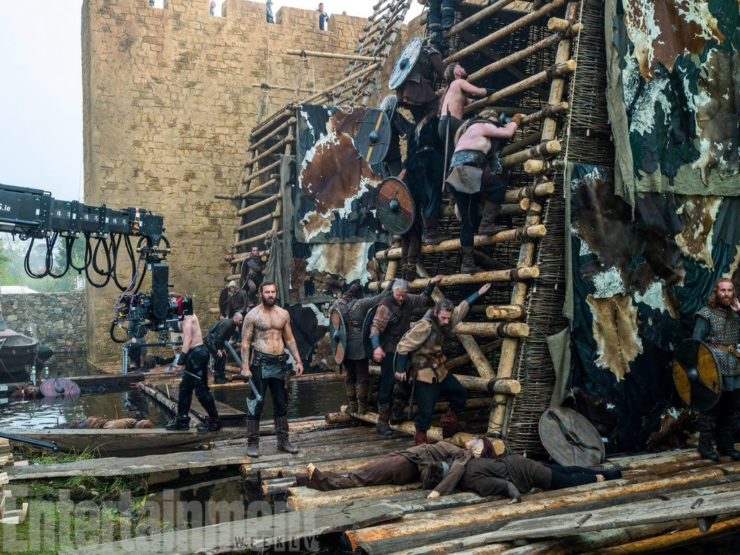
Russian containment is the fallback position of a Western hegemony that set out to strangle and then fragment the world’s biggest country since 2014. A recent Foreign Policy report confirms that the “strategy” now is to hold back the coming multipolar world.
After sufficiently blaming everything about the Ukraine affair on Vladimir Putin’s alleged insatiable lust for land and power, authors Michael Kimmage and Hanna Notte reveal the fact that the West’s multifaceted proxy war on Russia is not going well. Rather than ousting Russia’s leader and giving the Russians a strategic defeat that would lead to a domestic breakdown, the Western elite have made the Russians more powerful than ever.
The Washington Neocons have also managed to fragment NATO, disrupt European diplomacy, and bring their alliance to a tipping point. The quote below summarizes the Foreign Policy advisory on Russia, Putin, Ukraine, and the widening multipolarity gripping nations.
“The United States must harness its global influence to shorten the war, maximize support for Ukraine, and contain Russia.”
A few months ago, there was no talk of simply “containing Russia.” Let’s recall that warmongers like Senator Lindsey Graham were on the attack trying to fragment any alliance the rest of the world had with Russia a year ago. In fact, he told the Chinese, “If you jump on the Putin train, you’re dumber than dirt.” (POLITICO, Feb. 2023) The lunatic Graham does nothing but stomp around Washington, proclaiming the U.S. must beat Putin. Meanwhile, the think tanks and deep analysis reveal this fantasy’s crumbling.
More recently, in a meetup with Ukraine’s Zelensky, a less enthusiastic Graham simply praised the Ukrainians for being willing to fight to the last man in this senseless war for the Russian steppe. But Graham is not alone in his backup posture, the Council of Foreign Relations has stepped back to containment policy, and The Economist says the West is struggling to counter Russia successes both militarily and economically.
Meanwhile, the Voice of America is down to announcing Norway building a reindeer fence on the border with Russia. The deal there is, Norwegian officials, that so far this year, 42 reindeer have crossed into Russia seeking better pastures and grazing land. Those animals grazing on Russian lands costs the Norwegians, who have to pay Russia for the grazing rights. Next, I guess we can expect a range war between the two countries akin to something from a Hollywood western flick. This is how ridiculous the whole west versus east circus has become.
Finally, Bloomberg published “Russia is the big winner from OPEC+ production cutbacks,” a few days ago. The writing is on the wall for the U.S. and its allies, given the fact that back in February, Saudi production exceeded Russia’s by 500,000 barrels a day. As of now, the Saudis produce 250,000 barrels a day less than the Russians. And it looks set to stay there for a while. The price caps the Europeans seemed so proud of a few months ago, look pitiful compared to the level of control OPEC, Russia, and the Iranians can exert on the market in the future. Russia and the Saudis are earning more, by producing less due to hikes in pricing because of supply and demand. It all comes down to who has the resources, and the price they want customers to pay for it. Knowing this, it seems like it would have been easier to predict the West’s failed sanctions bobble.
Comically, TIME is sharing “What Europe Can Do Next to Re-Contain Russia” on social media to try and glean a few zombie converts from back in the Cold War days. Liam Byrne, the chair of the Parliamentary Network on the World Bank and IMF, says that UK and European partners need to hurry up and develop this “re-containment” plan before it’s too late. Seriously, these nincompoops are proposing breathing life back into the Truman Doctrine.
Next, they’ll start construction on a wall between Poland and Western Ukraine (if the Russians decide to push that far). No, really. We are being teleported back to 1946 when American analyst George Keenan played the central role in developing the Marshall Plan. In all seriousness, we are seeing world detente and U.S. strategies go retrograded to the time of Tito in Yugoslavia, the Cuban Missile Crisis, and the Vietnam catastrophe. Or, in short, not a lot has changed, only some names and some borders. For Russia’s part, Putin clearly sees this and is preparing his country for the coming confrontation. Where the “wall” gets built seems to be the key point if you ask me.
Phil Butler, is a policy investigator and analyst, a political scientist and expert on Eastern Europe, he’s an author of the recent bestseller “Putin’s Praetorians” and other books. He writes exclusively for the online magazine “New Eastern Outlook”.
